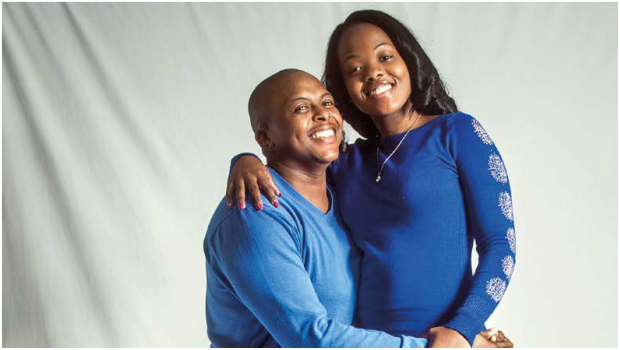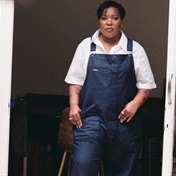
It was love at first sight when my husband and I met a couple of years ago. I was in my third year at university and he was already a successful businessman in rural Eastern Cape. We got married straight after I graduated, as a long-distance relationship was too hard.
I made the decision to leave the city, start a family and work with my husband.
Since the Xhosa and Zulu ethnicities fall under the same Nguni umbrella, I’d assumed there wouldn’t be that many differences in our cultural practices. But I was wrong. I was now a Xhosa wife and was expected to dress and behave like one.
I went through an initiation where I had to wear my full Xhosa wife attire (amajalman) and I was expected to work hard around the house, make tea for visitors and be respectful and friendly to the community.
I enjoyed this phase for a while until I realised I didn’t want to be limited to just being a Xhosa wife. I still had dreams beyond the cultural expectations. In the city I wore heels daily, pants and basically made an effort to look good. Now I couldn’t wear trousers, wore a headscarf 24/7 and heels weren’t suited to rural life.
The community felt the need to be very involved in my life. Whenever older women saw me around town they couldn’t resist advising me on how to be a good wife and take care of my husband. I was also losing my professional freedom as the role of wife took over.
I’d worked as a TV and radio presenter but was now the cleaning lady and general dogs body in my husband’s business. We fought a lot – working together wasn’t fun and living in his home was hard as we constantly had to respect our elders.
I felt like I was suffocating, and I didn’t want to give up everything I believed in just to wear a ring on my finger. When I had a child I knew it was time to reassess and take back control of my life.
It wasn’t easy for the community to accept this, but my happiness was more important than their opinions. I slowly taught people that I was my own person.
I stopped wearing my doeks to work, started wearing pants and focused on my own career as well. In the end my husband overcame his reservations and helped me set up a youth-inspired arts and media company. I didn’t become rebellious – I respected the community, but they had to respect me too.
I wore the appropriate clothes in my in-laws’ house, but I changed as soon as I left. I’ve learnt valuable lessons about marriage, not least that you really need to prepare for what can be an overwhelming experience.
As a woman there’s a lot you have to leave behind, but once you learn to adjust and rebuild your life together, it can turn out beautifully.
Compromise is key
A traditional makoti who’d grown up in a rural area would adjust with ease to her new marital status.
“In fact she would embrace her new role and beam with pride at being a makoti and living with his family to build her new family,” explains marriage counsellor Eunice Magongoe.
She points out that I struggled as a modern makoti when my initial excitement at being a Xhosa wife withered once I realised it was all I was. I’d made the change initially out of respect but could only sustain the pretense for so long. When I started re-establishing my identity the community was shocked because they didn’t understand what it meant to be a modern, single woman.
Eunice notes that compromise became possible over time because I respected rural customs when I was in the community and they came to see that my modern lifestyle didn’t make me a bad wife.
“My advice to new makotis is to tolerate the challenges that contribute to their growth and reject the ones where they lose themselves and their identities in the role of a wife,” Eunice says.
She believes it’s important to do your homework to avoid unnecessary clashes and fights in marriage and be prepared to raise uncomfortable questions. “Don’t let feelings of love cloud your thinking. If you know you’re rigid and unadaptable, be open and honest about it.
It’s better that your partner knows this from the beginning rather than trying to change you later. “Have those deep meaningful conversations, like what family traditions are not negotiable.
And make sure you get clarity so you don’t take offence when they become a reality. “We tend to follow traditions without an understanding of their origins,” Eunice says. “Your role will change from being a single woman to being a wife, and as a mother you’ll have to teach future generations about the family history and traditions one day too.”
From me to we
We tend to forget that challenges are part of any marriage, and when we see a so-called good marriage it’s usually the result of hard work from both parties.
Marriage counsellor Lin Nxumalo says our expectations are shaped by romcoms and Instagram. “There’s this idea that if you find Mr Right your life will be perfect. It’s lies, I tell you, all lies! All relationships require work to survive and thrive.”
Lin explains there are three things we need to manage when we move from being single to being married – the “me”, the “he/she” and the “we”.
“Knowing who you are before you get married is key,” Lin says. “This helps you know who you want to be in your marriage, what you want and to communicate it better. It’s important to be clear about what is and what isn’t acceptable. Egos need to be left at the altar.”
He/she
“See who your partner is and stop trying to change them,” Lin recommends. “Love and acceptance are the tools for long-term success. There will always be disagreements because you’re different individuals, but approaching differences with kindness and respect helps build healthy ways of dealing with conflict.” We
“You need to work out what you want to create,” Lin says.
“What is the purpose of the relationship and where is it going? It’s a coming together of individuals and everything each one brings into the marriage such as family, tradition, culture, religion and background. This requires mindfulness and respect of each other.
“Family demands and expectations will always be there, but how you juggle them should be a mutual decision. This will take time, and probably a few tears and hurt feelings, but if you both do it with patience, respect and kindness the journey will bring you back to love, where most relationships begin.” Just like me, the modern makoti, and my more traditional husband.


















